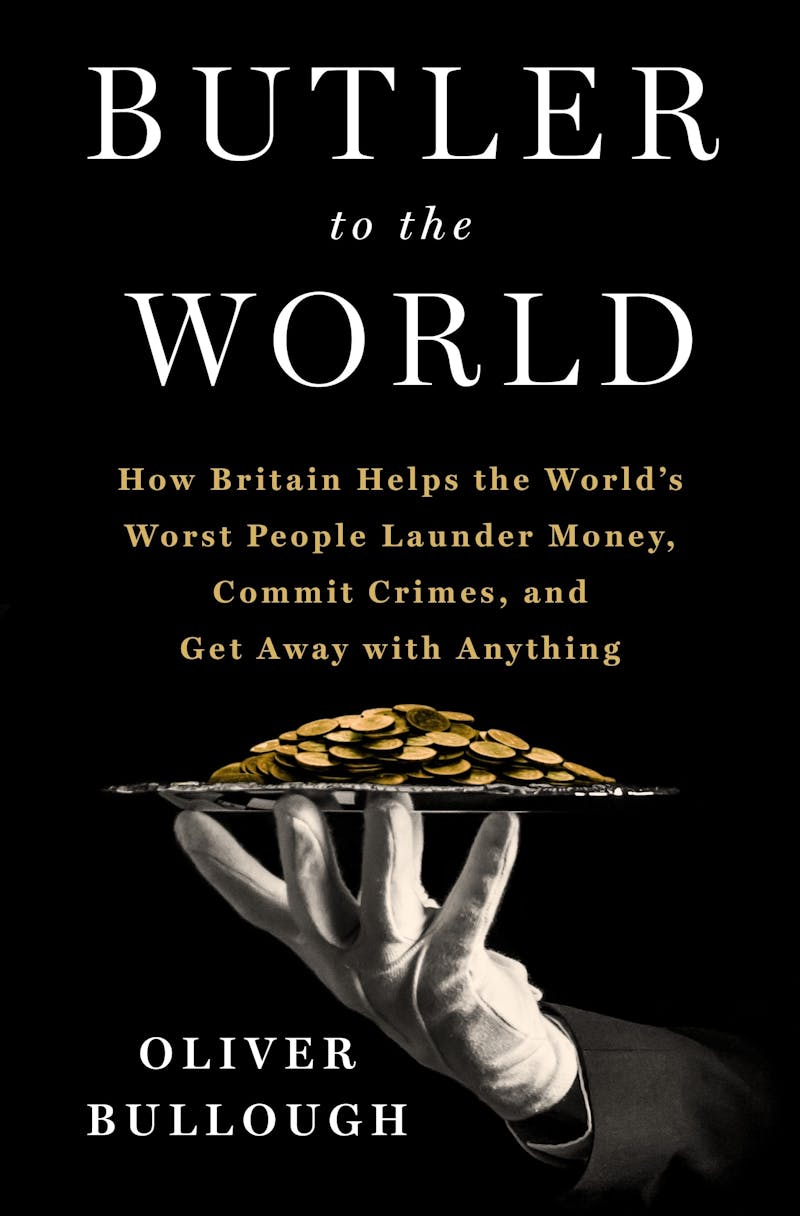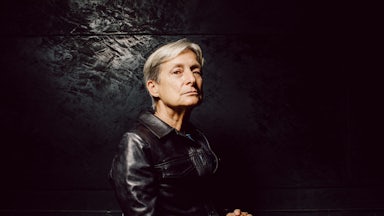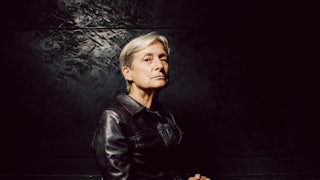Over the 70 years of her reign, Queen Elizabeth II has witnessed many changes, but few more historically significant than the decline and fall of the British Empire. From the days when much of the map of the world was painted red, it has shrunk to almost nothing. But not quite nothing. Here and there across the globe, tiny red dots still mark the last relics of empire: the Cayman Islands, the British Virgin Islands, and Gibraltar, all still nominally under British sovereignty. And although Dean Acheson could say in 1962 that “Great Britain has lost an empire but not yet found a role,” those last remnants of empire have assuredly found new roles. They are true world-beaters: as tax havens, homes for semi-criminal shell companies, and eager recipients of dirty money in need of laundering.
A recent reminder came when the premier of the British Virgin Islands, Andrew Fahie, was stripped of his office this year. While on an ill-advised visit to the United States, he stepped off a private plane in Miami and was arrested by the Drug Enforcement Administration. The U.S. government charged him with money laundering and drug smuggling, while the British fretted over whether it should take the BVI under direct rule.

Such little outposts could claim that they are no worse than the mother country that once ruled the empire. In May, Liverpool FC won the historic Football Association cup final by beating Chelsea FC, a team then switching owners. One consequence of Vladimir Putin’s brutal invasion of Ukraine was to remind us that London was awash with the wealth of the absurdly termed “oligarchs,” the men who became enormously rich in the years following the collapse of communism and the implosion of the Soviet Union by looting Russia of its vast natural resources. One of them was Putin’s associate Roman Abramovich, who bought Chelsea in 2003 and, having been sanctioned by the British government, which froze his assets in March, began trying to dispose of it.
Part of this squalid story has already been told by Oliver Bullough in his excellent 2018 book, Moneyland, which described the new world order of national and international kleptocracy. Abramovich was a notable member of that order, along with Vladimir Chernukhin and Alisher Usmanov, among others. Since that book, Bullough has been running “kleptocracy tours” of London, like bus tours of the Hollywood showing where the stars live, except in this case Bullough has mapped the vast abodes where these rascals live, from Highgate to Chelsea. His new book, Butler to the World, is a form of guided tour itself, taking us to those last relics of empire before returning home to “Londongrad,” where Bullough finds a service industry of bankers, lawyers, accountants, estate agents, “reputation protection consultants,” and facilitators of every kind.
England today, Bullough proposes, “is like a butler,” a figure who “does not concern himself with the moral character of his clients.” That may be a little unfair to butlers, not such a bad lot in my limited experience, and what Bullough really means is that, beyond financial and legal services, London is also selling the remains of its cultural capital: the deference or obsequiousness of its professional class conferring on their business associates an aura of respectability or patrician glamour. The more apt word for members of this class would be enabler or opportunist: Butler to the World is really a story about the legacy of empire and the sorry state of a country that finds itself acting as a factotum for the international plutocracy.
The story of Britain’s transformation into an oligarch’s paradise has its origins in the country’s earlier decline. Once upon a time, English banking and broking prided itself on its integrity. Bullough describes a system before the 1950s in which “financial institutions were largely guided by gentle pressure toward doing the ‘right thing,’” with no need for formal agreements, since “a chap’s word was his bond.” But the City lost its global financial supremacy to Wall Street after two world wars. Cripplingly indebted after 1918, Britain was well-nigh bankrupt after 1945. “At the end of the ’50s, London seemed to have been left behind in the progress of world trade and finance,” Richard Fry wrote in The Guardian in 1970. “Such was the prevailing pessimism that the sons of some bankers were training to be farmers.” And yet by the end of the 1960s, all had already changed, thanks to brilliant wheezes thought up by a London bank: the Eurobond and the Eurodollar.
Before 1914, the financial dominance of the City had rested on the strength of the pound sterling, based in turn on the gold standard. Forty years later, the perennial weakness of sterling endangered all British financial institutions, until the Midland Bank had a brain wave: Rather than buying dollars, it could borrow them. “It was like renting a car rather than buying one,” Bullough says: “you can still drive wherever you like, but since the car belongs to someone else, you dodge any limitations on car ownership.” Better still, while avoiding limitations placed on domestic lending, Midland could also allow, let’s say, the Moscow Narodny Bank to avoid U.S. restrictions, while the Eurobond allowed “tax dodgers, kleptocrats and the occasional refugee to hide illicit funds from governments.” The genius of the Eurodollar was that “If you wanted to take advantage of the vitality and strength of the US economy, they were dollars; if you wanted to avoid restrictions imposed by the US government, they weren’t.”
In some rather predictable passages, Bullough derides the antiquated patrician elite who used to run the City, and he illustrates what he thinks was their haughty condescension to social inferiors by describing their tendency to address people by their surnames (“Dear Bell”). But not long ago, Englishmen of a certain class (politicians, barristers, and dons as well as bankers) talked to one another in just the same way: Seventy years ago, the prime minister would begin a letter to the leader of the opposition with “My dear Churchill.” More to the point, that old elite showed that they could easily move with the times and forget their stuffier proprieties, when it suited them. It was Charles Hambro, an Etonian with a name famous in high finance, who formulated the proposition, “If we were to stop the business here, it would move to other centers with a consequent loss of earnings for London.” Since he said that, his words have been parroted endlessly by everyone from bankers doing dodgy deals with shady customers to politicians justifying the sale of armaments to brutal tyrannies: If we don’t do it, someone else will.
The international rich now had their own currency. By 1964, Oscar Altman, deputy director of the International Monetary Fund, could say, “The Euro-dollar market knows no politics,” and by 1969, The New York Times called the Eurodollar “a strapping giant, well over $20-billion strong, baffling to the layman and puzzling even to the experts,” and one which “has no nationality, owes allegiance to no one and roams the world looking for the biggest financial rewards.” More than 50 years on, we can see that enthusiasm as the harbinger for so much to come.
Leaving the City, Bullough takes us to the next stop on his kleptocrat tour. The British Virgin Islands were a colonial relic; once a sugar-producing colony run on slave labor, by the postwar decades, the islands earned half their revenue from selling their decorative stamps. Then, in 1976, the BVI caught the eye of the New York lawyer Paul Butler, who saw their remarkable potential as a financial center. Some American financiers had already identified the Caribbean island of Curaçao as a convenient place to establish notional subsidiaries, allowing them to avoid high U.S. taxes and operate free from pesky domestic regulations that were designed to restrain reckless speculation. The drawback was that Curaçao is Dutch-speaking, and its legal structures all use Dutch. The BVI, on the other hand, speak English. Butler’s lawyers set about incorporating companies there, forming as many as 50 in one month, and money poured into the islands.
When the U.S. government closed the tax loophole in 1982, Butler came up with a new idea. Inspired by shell companies in Panama and Delaware, he persuaded the government of the BVI to create “international business companies,” opaque, tax-free, and obliged to keep records only “as the directors consider necessary.” This strategy earned a glowing endorsement when Li Ka-shing, the richest man in Hong Kong, transferred his shipping assets to a BVI shell company in the mid-1980s. By 1997, Bullough writes, “the BVI was registering more than 50,000 companies a year.”
These BVI shell companies have enabled a range of dubious actors around the world. They are used, Bullough reports, “by North Korean arms smugglers, crooked Afghan officials, American tax dodgers, South American drug cartels, Kremlin insiders, corrupt football administrators and far too many criminals to name.” This was “all guaranteed by the pleasant and reassuringly solid presence of the British flag.” We learned something of this when the highly embarrassing Panama Papers were leaked from the Panamanian law firm Mossack Fonseca, with details of many companies registered in the BVI. That firm has now cut its connections with the BVI, although when Bullough visited the country, he found its ghostly name on its former office.
If the BVI had been a small, struggling remnant of empire, Gibraltar had been a world-famous symbol of British might for more than three centuries. In its new late–twentieth-century role, it was destined to play a large part in the unhappy story of British gambling. More than 30 years ago, the legislature of this little colony changed its betting taxes, prompting a stream and then a flood of London bookmakers to move there, relieving gamblers of their money while avoiding British taxes. Soon the bookmakers used the welcoming base in Gibraltar for further expansion, in particular finding new clientele in the Middle East and East Asia.
English horse racing is largely owned by the rulers of oil-rich, democracy-poor Persian Gulf states, and English football has an enormous audience in China. The bookmakers now had distant clients who would bet online in five- or six-figure sums. Before long, the average bet in Gibraltar was £2,500. British-based bookmakers now argued they needed similarly lax rules in order to compete. By the late 1990s, Bullough writes, they “were pushing at an open door.” Tony Blair’s “third way” relished discarding “the pious moralizing of old-style politics,” Bullough says. “If multinational betting companies just happened to massively increase their profits in the process … then that was all for the good.”
What was not to the good was the Gambling Act passed by the Blair government in 2005, which made gambling a free-for-all, with no restrictions on the number of betting shops that could be opened and no supervision of betting in cyberspace. Blair’s sidekick Peter Mandelson had memorably said that New Labour was “intensely relaxed about people getting filthy rich,” and Denise Coates took him at his word. She began her online firm, bet365, from a shed in a parking lot and has since expanded it to the point where she can pay herself a salary of £250 million a year. If you watch sports on English television nowadays (my wife might say that I do little else), you will see relentless promotion of gambling, in the ads, on the billboards at football stadiums, and even on the players’ shirts.
Meanwhile, in the poorest quarters of working-class cities, there are streets without grocery or clothing stores, but instead a line of betting shops. Inside, you find rows of fixed-odds betting terminals like diabolical fruit machines. Then came the smartphone, and bookmakers, shrewdly ahead of the game, realized that gamblers could be encouraged to bet more or less continuously. Countless people, and their families, have been destroyed by the addictive gambling this encouraged, all thanks to what some still think was a progressive government.
If a British government facilitated this social disaster, another kind of scandal, unnoticed to begin with, was the Scottish limited partnership. SLPs are like limited partnerships in England, in that the partnership does not have to make its accounts public and is not taxed itself; the partners instead pay taxes as individuals. But unlike the English kind, the Scottish partnerships can “own property, enter into contracts, sue or be sued and generally behave like a company,” all without making any disclosures, Bullough writes. Since these limited partnerships are almost entirely opaque, they were perfectly suited to people who had money they wanted to move clandestinely and hide effectively. SLPs have existed since 1907 but were not widely used until the last decade, when they became suddenly popular. More SLPs were registered in 2016, Bullough observes, than in the first 100 years of their existence.
SLPs were very useful for companies that wanted to look legitimate while operating with complete freedom and secrecy. In 2015, journalists at the Glasgow Herald found that an innocuous-seeming partnership called Fortuna United LP was the final owner of $1 billion stolen from Moldovan banks in 2014. Though the partnership was registered to a modest house in a suburb of Edinburgh, it was “actually controlled by two companies in the Seychelles, a notorious tax haven where ownership of companies is a closely guarded secret.” And 437 other limited partnerships, the Herald journalists learned, were registered to the same address. These SLPs, they reported, were used to facilitate the arms trade between Ukraine and Gulf states, for marketing counterfeit vodka, and for copyright infringement on a vast scale.
In one respect, Bullough’s book is more topical than he could have imagined when it went to press. Before the overthrow of Putin’s ally Viktor Yanukovych in 2014, energy-related interests enjoyed extraordinary power and influence in Ukraine, particularly the shadowy company RosUkrEnergo. Its half-owner turned out to be Dmitry Firtash, who had helped Yanukovych become president before plunging into English life, and in Firtash’s story Bullough’s theme really comes into its own. England, the City, the “establishment” didn’t just allow such people to come in; they begged and almost bribed them to come with “golden visas” for “highly skilled migrants”—or very rich foreigners.
Thus Vladimir Granovski, a Ukrainian millionaire, arrived in London, bought a house for £5.4 million, and went into a new business, helping rich Russians immigrate and find a place in English high society, or at least among other rich people. In 2004, Granovski found a partner in Raymond Asquith, great-grandson of the early–twentieth-century Prime Minister H.H. Asquith, and now himself the earl of Oxford and Asquith. He had formerly worked for the Secret Intelligence Service or MI6—the British counterpart to the CIA—when he pulled off a brilliant coup by exfiltrating the double agent Oleg Gordievsky in 1985, smuggling him out of Russia in the trunk of a car with a used diaper to throw KGB sniffer dogs literally off the scent. Now in the private sector, he went into business with Granovski, enlisting a helpful Conservative MP called Richard Spring on a retainer of up to £40,000 a year. One of the first clients of Asquith & Granovski Associates was Firtash.
In 2010, Firtash sponsored a Ukrainian studies course at Cambridge University. His £4 million donation would make the university “a vibrant home for the study of Ukraine for many generations to come,” the head of the Cambridge School of Arts and Humanities, professor Simon Franklin, declared in a statement at the time. The next year, Firtash was welcomed into the Cambridge Guild of Benefactors by no less than the chancellor of the university, the duke of Edinburgh. All this unfolded, Bullough notes, while Firtash’s friend Yanukovych’s “corruption became ever more blatant, and his profligacy ever more obscene with the building of a huge palace on the outskirts of Kyiv.” In less than 10 years, Firtash had gone from a “shadowy businessman who had helped Putin dominate Ukraine to a widely praised philanthropist” who met the queen’s husband and, in a surreal touch, bought the disused Brompton Road underground station from the Ministry of Defense to add to his London property portfolio.
But by 2018, even the English were growing uneasy about the oligarchy. An attempt by Putin’s agents to poison the Russian defector Sergei Skripal in the leafy cathedral city of Salisbury, of all places, began to ring alarm bells—not only about an outrageous attempted assassination but about the whole way in which the British had welcomed so many rich Russians, some of whom, like Skripal, might have fallen foul of Putin, some of whom were still his cronies. Bullough himself gave evidence in 2018 to the Foreign Affairs Committee of the House of Commons, to which he expatiated on the “British tendency to accept money from anyone that has it,” and the entirely foreseeable consequences of this. He also warned that the Financial Conduct Authority and other British official bodies were grossly underfunded and put to shame by their U.S. counterparts when it came to tackling large-scale financial crime.
Government agencies had been demoralized by unsuccessful cases they had brought against powerful international criminals who, unlike petty fraudsters, could command the best lawyers and financial advisers money can buy. In 2020, the National Crime Agency suffered a striking failure in the “unexplained wealth” case it brought against Dariga Nazarbayeva, daughter of the former “president for life” of Kazakhstan (whose own personal adviser, by the way, was none other than Tony Blair). After the case collapsed, one of the investigators said sourly that it was “a waste of time trying to take on oligarchs if they employ topflight law firms.” A handful of extremely expensive London firms like Carter-Ruck and Schillings use the English libel laws—which, despite recent reforms, remain heavily weighted in favor of the complainant or plaintiff—to silence criticism.
Such laws make honest reporting on international crime extremely difficult. When the former Moscow correspondent for the Financial Times, Catherine Belton, published her acclaimed exposé, Putin’s People: How the KGB Took Back Russia and Then Took on the West, she was sued by Abramovich and the oil and real estate tycoon Shalva Chigirinsky, and her publisher was sued by the Russian banker Mikhail Fridman, in a concerted campaign of “lawfare.” As the huge legal bills mount, it’s very tempting for publishers to settle, but to its credit, her publisher, HarperCollins, defended her, agreeing in the end to only minor changes to the text. Her remarkable book remains available, even if the campaign against her is likely to have discouraged other journalists from digging as deep as she has.
It has taken the war in Ukraine to cool the attitudes of British government and business toward the oligarchs. Only recently, Bullough writes, “hundreds of billions of pounds of criminal money” was flowing “through the City of London every year, most of it stolen from vulnerable people in some of the world’s poorest countries.” And where did this money go, besides to estate agents who sell huge London houses, to the expensive English boarding schools where Russians liked to send their children, to the financiers who facilitated their deals, and to the lawyers who used every ruse to protect them? Well, one answer is to our politicians: At the time of writing, we have just learned that the Conservative Party received a major donation from a Russian source, with links to the pro-Kremlin Ukrainian politician Sergei Kopytov. While this may be an example of how Bullough’s “butler” analogy doesn’t quite work—a butler accepts tips from guests but doesn’t run the country—it illustrates in the most lurid way a larger story.
There is no clearer indication that Britain has lost its way, politically, economically, strategically, and ethically, than the outgoing occupant of 10 Downing Street. We have had good prime ministers and bad prime ministers, but never before a totally unprincipled opportunist and self-seeking mountebank, and it’s fair to say that, until recently, a man of Boris Johnson’s character and conduct could not possibly have become prime minister. In June, another prime minister who worships money became Sir Anthony Blair, Knight of the Garter. The motto of that ancient order of chivalry is “Honi soit qui mal y pense”—shame on him who evil thinks of it. Our national mottoes today might rather be, “How can I oblige?” and “No questions asked.”






